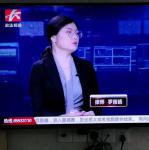发布文号: Order of the President of the People's Republic of China No.36
(Adopted at the 15th Meeting of the Standing Committee of the Sixth National People's Congress, promulgated by Order No. 36 of the President of the People's Republic of China on March 19, 1986, and effective as of October 1, 1986)
Chapter I General Provisions
Article 1 This Law is formulated in accordance with the Constitution of the People's Republic of China, with a view to developing the mining industry, to promoting the exploration, development, utilization and protection of mineral resources and to ensuring the present and long-term requirements of socialist modernization.
Article 2 This Law must be observed in exploring and exploiting mineral resources within the territory of the People's Republic of China and in the sea areas under its jurisdiction.
Article 3 Mineral resources shall be owned by the state. The state ownership of mineral resources, either near the earth's surface or underground, shall not change with the ownership or right to the use of the land which the mineral resources are attached to.
The state shall safeguard the rational development and utilization of mineral resources. Seizing or damaging mineral resources by any means and by any organization or individual shall be forbidden. People's governments at all levels must make serious efforts to protect mineral resources.
Anyone who wishes to explore mineral resources shall register according to law. Anyone who wishes to exploit mineral resources shall apply for the right of mining. The state shall protect lawful rights of exploration and mining from violation and protect order in production and other work in the mining and exploration areas from interference and disruption.
Mining rights may not be sold, leased or put in pledge.
Article 4 The state-operated mining enterprises shall be the principal force in exploiting mineral resources. The state shall guarantee the consolidation and expansion of state-operated mining enterprises.
The state shall encourage, direct and help the collective mining enterprises of township and towns to develop.
By administrative measures, the state shall direct, help and supervise individuals to conduct mining according to law.
Article 5 The state shall adopt the policy that mineral resources are to be mined with compensation. Anyone who exploits mineral resources must pay resources tax and compensation in accordance with relevant state provisions.
Article 6 With regard to the exploration and development of mineral resources, the state shall practise the policy of unified planning, rational distribution, comprehensive exploration, rational exploitation and comprehensive utilization.
Article 7 The state shall encourage scientific-technical research on the exploration and development of mineral resources, popularize advanced technology and raise the scientific-technical level of mineral exploration and development.
Article 8 Any organization or individual that has achieved remarkable success in the exploration, development and protection of mineral resources and in scientific-technical research shall be rewarded by the people's governments at various levels.
Article 9 The department in charge of geology and mineral resources under the State Council shall be responsible for supervision and administration of the exploration and development of mineral resources throughout the country. Other departments concerned under the State Council shall assist the department in change of geology and mineral resources under the State Council in supervising and administering the exploration and exploitation of mineral resources.
The departments in charge of geology and mineral resources under the people's governments of provinces, autonomous regions, and municipalities directly under the Central Government shall be in charge of supervising and administering the exploration and exploitation of mineral resources within their respective administrative areas. Other departments concerned under the people's governments of provinces, autonomous regions, and municipalities directly under the Central Government shall assist the departments in charge of geology and mineral resources at the same level in supervising and administering the exploration and exploitation of mineral resources.
Chapter II Registration for Mineral Exploration and Examination and Approval of Mineral Exploitation
Article 10 The state shall adopt a unified registration system for mineral exploration. The department in charge of geology and mineral resources under the State Council shall be responsible for registering the exploration of mineral resources. The State Council may authorize relevant departments to handle registration of the exploitation of special kinds of mineral ores. The scope and procedures for registration of mineral exploration shall be formulated by the State Council.
Article 11 The mineral reserves approval agency of the State Council or mineral reserves approval agencies of provinces, autonomous regions, and municipalities directly under the Central Government shall be responsible for the examination and approval of the prospecting reports to be used for mine construction designing and shall, within the prescribed time limit, give official replies to the units that submitted the reports. Unless a prospecting report is approved, it may not be used as the basis for mine construction designing.
Article 12 Archives of mineral exploration results and statistics of reserves of various kinds of minerals shall be subject to unified management, and shall be collected or compiled for submission to the competent authorities in accordance with the stipulations of the State Council.
Article 13 The establishment of state-operated mining enterprises shall be approved respectively by the State Council, the relevant department in charge under the State Council and the people's governments of provinces, autonomous regions, or municipalities directly under the Central Government.
In the case of a state-operated mining enterprise which shall be established with the approval of the State Council or its relevant department in charge, the department in charge of geology and mineral resources under the State Council shall, before approval is granted, verify the proposed limits of mining operations and comprehensive utilization plan and write down its comments; after the approval is given, it shall issue a mining licence according to the approval document. Mining licences for specific kinds of minerals may be issued by a relevant department authorized by the State Council. In the case of a state-operated mining enterprise which shall be established with the approval of the people's government of a province, autonomous region, or municipality directly under the Central Government, the department in charge of geology and mineral resources under that people's government shall, before approval is granted, verify the proposed limits of mining operations and comprehensive utilization plan and write down its comments after the approval is given; it shall issue a mining liceace according to the approval document.
Article 14 Procedures for the examination and approval of the establishment of collective mining enterprises of villages and towns, for the issuance of mining licences and for the administration of mining by individuals shall be formulated by the standing committees of the people's congresses of provinces, autonomous regions, or municipalities directly under the Central Government.
Article 15 Mining areas which are to be exploited under the state plan, those which are of great value to the national economy and special kinds of minerals for which protective mining is prescribed by the state, shall be exploited by the state in a planned way. No unit or individual may be permitted to exploit them without the approval of the department in charge under the State Council.
Article 16 After defining, according to law, the limits of the mining areas that are to be exploited under the state plan, mining areas that are of great value to the national economy and mining areas of mining enterprises, the competent departments responsible for defining such areas shall inform the relevant people's government at the county level to make a public announcement.
Any change in the mining area of a mining enterprise must be reported to and approved by the original approval department, and a new mining licence must be obtained from the department that issued the original mining licence.
No unit or individual may enter and mine in the mining area of a mining enterprise that have acquired the mining rights.
Article 17 Unless approved by the competent department authorized by the State Council, no one may exploit mineral deposits in the following places:
(1) within demarcated areas of harbours, airports and national defence projects or installations;
(2) within a certain distance from important industrial districts, large scale water conservancy works or municipal engineering installations of cities and towns;
(3) within certain limits on both sides of railways and important highways;
(4) within certain limits on both sides of important rivers and embankments;
(5) nature reserves and important scenic spots designated by the state, major sites of immovable historical relics and places of historical interest and scenic beauty that are under state protection; and
(6) other areas where mineral exploitation is forbidden by the state.
Article 18 If a mine is to be closed down, a report must be prepared with information about the mining operations, hidden dangers, land reclamation and utilization, and environmental protection, and an application for approval must be filed in accordance with the relevant state provisions.
Article 19 If, in the course of mineral exploration or exploitation, rare geologic phenomena or ancient cultural remains of major scientific and cultural value are discovered, they shall be protected and reported immediately to the relevant departments.
Chapter III Mineral Exploration
Article 20 Regional geologic surveys shall be carried out in accordance with the unified state plan. Reports on regional geologic surveys and the appended maps and other data shall be examined and accepted according to state regulations and then provided to relevant departments for use.
Article 21 In conducting a general survey of mineral resources, while surveying for the chief kind of mineral deposits, a preliminary comprehensive assessment shall be made of the minerogenetic conditions involving all paragenetic or associated mineral ores and of the economic perspective of those mineral ores in the area being surveyed.
Article 22 In prospecting for mineral deposits, a comprehensive assessment of the paragenetic and associated mineral ores of commercial value within the mining area must be made and their reserves calculated. Any prospecting report without such comprehensive assessment shall not be approved. However, an exception shall be made of the mineral deposit prospecting items for which the planning department of the State Council has made other stipulations.
Article 23 In conducting general surveys and prospecting of special kinds of fragile non-metallic minerals, fluid minerals, combustible, explosive and soluble minerals and minerals containing radioactive elements, methods prescribed by the competent departments of people's governments at or above the provincial level must be used, and necessary technical installations and safety measures must be provided.
Article 24 The original geological record, maps, and other data of mineral exploration, rock cores, test samples, specimens of other material objects, and various exploration marks shall be protected and preserved in accordance with the relevant provisions.
Article 25 Prospecting reports on mineral deposits and other valuable exploration data shall be provided for use with compensation in accordance with the provisions made by the State Council.
Chapter IV Mineral Exploitation
Article 26 Before a mining enterprise is established, the approval authority shall examine its application as to the limits of its mining area, design or mining plan, production technique and safety and environmental protection measures in accordance with the law and relevant state provisions. Approval shall be granted if it finds the enterprise meets these requirements.
Article 27 In exploiting mineral resources, a mining enterprise must adopt rational sequence and methods of mining and the proper ore-dressing technology. The recovery rate and impoverishment rate in mining and recovery rate in ore-dressing of a mining enterprise shall meet the design requirements.
Article 28 While exploiting the chief mineral deposit, its paragenetic and associated mineral ores having commercial value shall be comprehensively exploited and utilized in accordance with a unified plan, so as to avoid waste. Effective protective measures shall be adopted to avoid loss and damage to ores that cannot be exploited in a comprehensive way or that must be exploited simultaneously but cannot be comprehensively utilized for the time being, and to tailings containing useful components.
Article 29 In exploiting mineral resources, it is essential to abide by the state provisions for labour safety and hygiene and have the necessary conditions to ensure safety in production.
Article 30 In exploiting mineral resources, it is essential to observe the legal provisions on environmental protection to prevent pollution of the environment.
In mining mineral resources, attention shall be paid to using land economically. In case cultivated land, grassland or forest land is damaged owing to mining, the relevant mining enterprise shall take measures to utilize the lands affected, such as by reclamation, tree planting and grass planting, as appropriate to the local conditions.
Anyone who, in mining mineral deposits, causes losses to the production and livelihood of other persons shall be liable to compensation and adopt the necessary remedial measures.
Article 31 Before the construction of railways, factories, reservoirs, oil pipelines, transmission lines and various large structures or architectural complexes, the units responsible for the construction must obtain information from departments in charge of geology and mineral resources under the people's governments of provinces, autonomous regions, or centrally administered municipalities where the units are located, about the distribution and mining of mineral resources in the areas where the construction projects are to be built. Those projects shall not be built over important mineral deposits unless approved by departments authorized by the State Council.
Article 32 As prescribed by the State Council, mineral products to be purchased exclusively by designated units may not be purchased by any other units or individuals; excavators of such minerals shall not sell their products to non-designated units.
Article 33 In exploiting mineral resources in national autonomous areas, the state shall give due consideration to the interests of those areas and make arrangements favour able to the areas' economic construction and to the production and livelihood of the people of local minority nationalities.
The organs of self-government of national autonomous areas shall, in accordance with legal provisions and the unified state plan, have priority for rationally developing and utilizing the mineral resources that may be developed by local authorities.
Chapter V Collective Mining Enterprises of Villages and Towns and Mining by Individuals
Article 34 The state shall adopt a policy of vigorous support, rational planning, correct guidance and powerful administration with regard to collective mining enterprises of villages and towns and mining by individuals. It shall encourage collective mining enterprises of townships and towns to exploit mineral resources within the areas designated by the state, and permit individuals to exploit scattered and dispersed mineral deposits, as well as sand, stone and clay usable only for common building materials, and small amounts of minerals for their own use in daily life.
The state shall direct and help collective mining enterprises of villages and towns and individual miners to raise unceasingly their technical level, and to increase the mineral resource utilization .ate and economic effects.
Departments in charge of geology and mineral resources, geological units and state-operated mining enter prises shall, on the principles of vigorous support and mutual benefit, provide geological data and technical service with compensation to collective mining enterprises of villages and towns and individual miners.
Article 35 Existing collective mining enterprises of villages and towns, located within the mining area of a mining enterprise which is to be established with the approval of the State Council or the relevant department in charge under the State Council, shall be closed down or carry on mining in other designated places. The unit that undertakes to open the mine shall give rational compensation to the closed-down enterprise and make appropriate arrangements for the masses' livelihood. According to its overall arrangement, the state-operated mining enterprise may also enter into joint operation with the collective mining enterprises.
Article 36 Under the general arrangement of the state-operated mining enterprises and with the approval of higher authorities, collective mining enterprises of villages and towns may exploit marginal and scattered ores within the limits of the state-operated mining enterprises, provided that they apply for mining licences as required.
Article 37 Collective mining enterprises of villages and towns and individuals engaged in mining shall raise their technical level and increase the mineral recovery rate. Abusive or wasteful exploitation which is destructive to mineral resources shall be forbidden.
Collective mining enterprises of villages and towns must survey and draw maps showing the correlation between surface and underground Workings.
Article 38 People's governments at and above the county level shall direct and help collective mining enterprises of villages and towns and individuals engaged in mining in carrying out technological transformation, improving business management and ensuring safety in production.
Chapter VI Legal Liability
Article 39 Anyone who, in violation of the provisions of this Law, mines without a mining licence, enters without authorization and mines in mining areas that the state has planned to develop, in mining areas with ores of significant value to the national economy, or in others' mining areas, or exploits special kinds of minerals that the state has prescribed for protective exploitation shall be ordered to stop excavation, compensate for the losses caused, have his extracted mineral products and unlawful proceeds confiscated, and may be fined concurrently. If the party refuses to stop mining and thus causes damage to mineral resources, the persons directly responsible shall be investigated for criminal responsibility in accordance with the provisions of Article 156 of the Criminal Law.
Article 40 Anyone who mines beyond the approved limits of his mining area shall be ordered to return to his own area and compensate for the losses caused, shall have the mineral products extracted outside his area and his unlawful proceeds confiscated, and may be fined concurrently. If the offender refuses to return to his own mining area and causes damage to mineral resources, his mining licence shall be revoked and the persons directly responsible shall be investigated for criminal responsibility in accordance with the provisions of Article 156 of the Criminal Law.
Article 4l Anyone who steals or seizes mineral products or other property of mining enterprises or exploration units, damages mining or exploration facilities, or disrupts order in production and other work in mining areas or in areas of exploration operation shall be investigated for criminal responsibility in accordance with relevant provisions of the Criminal Law; if the circumstances are obviously minor, the offender shall be punished in accordance with relevant provisions of the Penalty Regulations Regarding Public Security Administration.
Article 42 Anyone who sells, leases or transfers mineral resources by other means shall have his unlawful proceeds confiscated and be fined.
Anyone who sells a mining right or puts it in pledge shall have his unlawful proceeds confiscated, be fined and have his mining licence revoked.
Article 43 Anyone who, in violation of the provisions of this Law, purchases or sells mineral products which are to be purchased exclusively by the state shall have such products and his unlawful proceeds confiscated and may be fined concurrently. If the circumstances are serious, criminal responsibility shall be investigated in accordance with the provisions of Article 117 and 118 of the Criminal Law.
Article 44 Anyone who, in violation of the provisions of this Law, exploits mineral resources in a destructive way and causes heavy damage to mineral resources shall be ordered to compensate for the losses caused and be fined. If the circumstances are serious, the offender's mining licence may be revoked.
Article 45 The administrative penalties prescribed in Articles 39, 40 and 42 of this Law shall be decided by municipal or county people's governments. The administrative penalties prescribed in Article 43 shall be decided by the administrative departments for industry and commerce. The administrative penalties prescribed in Article 44 shall be decided by departments in charge of geology and mineral resources under the people's governments of provinces, autonomous regions, or municipalities directly under the Central Government. The penalty of revoking the mining licence of a mining enterprise, the opening of which was approved by the State Council or its relevant department, shall be reported to the people's government of a province, autonomous region, or municipality directly under the Central Government for approval.
Article 46 A party who refuses to accept the decision on administrative penalties may, within 15 days after receiving notification of the decision, bring suit in a people's court. If the party neither brings suit nor complies with the decision on a fine and confiscation of the unlawful proceeds within the time limit, the agency that made the decision shall request the people's court to compel execution of the decision.
Article 47 Disputes over the limits of mining areas between mining enterprises shall be settled by the parties through consultation; if no agreement is reached through consultation, the relevant local government at or above the county level shall handle the case on the basis of the limits that have been verified and fixed according to law. Disputes over the limits of mining areas that straddle provinces, autonomous regions, or municipalities directly under the Central Government shall be settled by the people's governments of the relevant provinces, autonomous regions, or municipalities through consultation. If no agreement is reached through consultation, the disputes shall be settled by the State Council.
Chapter VII Supplementary Provisions
Article 48 Rules for the implementation of this Law shall be formulated by the State Council.
Article 49 This Law shall go into effect on October 1, 1986.
Article 50 Before this Law goes into effect, anyone who exploited mineral resources without going through approval procedures, having the mining area delimited and obtaining a mining licence shall complete the formalities in accordance with relevant provisions of this Law.










